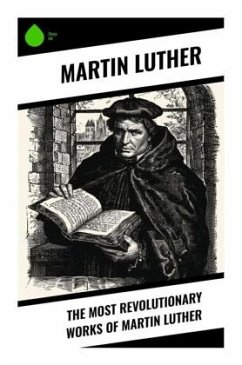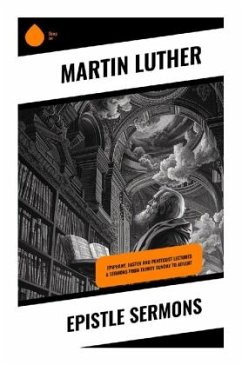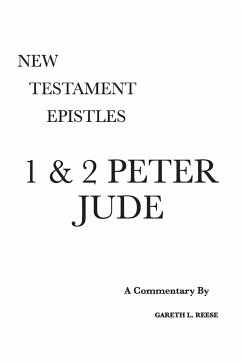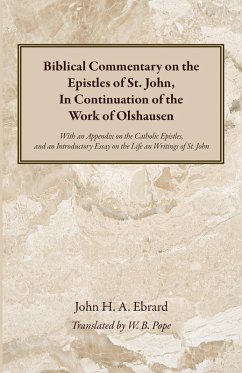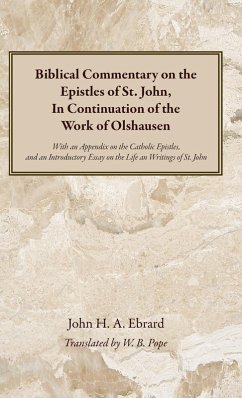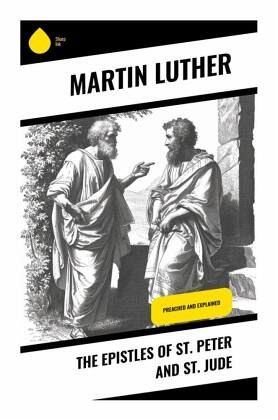
The Epistles of St. Peter and St. Jude
Preached and Explained
Übersetzung: Gillett, E. H.
Versandkostenfrei!
Versandfertig in 6-10 Tagen
10,50 €
inkl. MwSt.
Weitere Ausgaben:

PAYBACK Punkte
0 °P sammeln!
In "The Epistles of St. Peter and St. Jude," Martin Luther offers a critical examination and exegesis of the epistles attributed to the Apostles Peter and Jude, focusing on their theological implications and ecclesiastical relevance. Written in a succinct, polemical style characteristic of Reformation literature, Luther emphasizes themes of faith, grace, and the authenticity of Christian doctrine. His commentary situates these epistles within the broader context of early Christian writings and addresses their significance amid the theological upheaval of the 16th century, especially regarding ...
In "The Epistles of St. Peter and St. Jude," Martin Luther offers a critical examination and exegesis of the epistles attributed to the Apostles Peter and Jude, focusing on their theological implications and ecclesiastical relevance. Written in a succinct, polemical style characteristic of Reformation literature, Luther emphasizes themes of faith, grace, and the authenticity of Christian doctrine. His commentary situates these epistles within the broader context of early Christian writings and addresses their significance amid the theological upheaval of the 16th century, especially regarding issues of authority and scriptural interpretation. Martin Luther, a seminal figure in the Protestant Reformation, was driven by his commitment to returning Christianity to its biblical roots, which profoundly shaped his theological perspectives. His extensive background in theology, combined with his personal struggles against the prevailing religious dogmas of his time, provided him with a unique lens to interpret the sacred texts. Luther's work not only sought to illuminate the original text but also to empower lay Christians with a deeper understanding of their faith and the challenges posed by contemporary ecclesiastical authority. This book is essential reading for anyone seeking to explore the intersection of scripture and Reformation thought. Luther's insights provide a robust framework for understanding the epistles' enduring significance and call to steadfastness in the face of adversity. Scholars and laypersons alike will find value in Luther's passionate defense of faith and his call for a return to scriptural fundamentals.




